Huntington’s disease (HD) is progressive and degenerative disease of the brain. This genetic disorder affects certain brain cells, damaging them and causing problems with movements, but also leading to mental deterioration and emotional problems.
This disease is inherited, which means that a person suffering from Huntington’s has developed the disease because of mutated genes he or she has inherited from his/her parents. Most people notice first signs in middle age, but the disease is known to be more severe in younger people. In rare occasions children may also develop this disease.
Managing Huntington’s Disease
Huntington’s disease can be treated with medications in order to manage the symptoms and make life easier for these patients. However, the disease is progressive and there is no treatment available to prevent any physical or mental problem related to this medical condition. Patients are advised to exercise regularly, because physical activity has proven to be helpful in managing the condition. Make sure to wear proper shoes during these activities, to enhance your stability and you will ensure both mental and physical benefits of exercise.
Proper nutrition and plenty of fluids are also vitally important for HD patients. Adequate amounts of food are necessary, because these patients may burn up to 5.000 calories per day. Some patients may need vitamin and mineral supplements. As the disease progresses, many people become unable to eat on their own, requiring some assistance. You may want to eat pureed food or small pieces of food to swallow it more easily. Patients suffering from Huntington’s disease could also benefit from specially designed cups and tableware. Consult occupational therapist to learn how to improve swallowing. Avoid eating dairy products, for these may increase secretion of mucus and potentially lead to choking.
Treatment methods can involve use of different medications, such as tetrabenazine, clonazepam, clozapine, fluoxetine and some other drugs, but also physical, speech and occupational therapies as well as some still experimental treatments like stem cell treatment.
Huntington’s Disease Prevention
Huntington’s disease cannot be actually prevented. For people carrying mutated genes there is a 50% chance to have a child with this disease. Because of that, doctors advise counseling for everyone who has a close family member suffering from Huntington’s. Genetic counseling and blood tests could help these people to determine the presence of mutated gene responsible for this disease years before it shows any symptoms.
Parent carriers of the gene for Huntington’s disease could be advised to think about assisted reproduction and screening the embryos for gene mutation. Another option for these parents may be adoption.
NINDS is a component of the National Institutes of Health (NIH), the leading supporter of biomedical research in the world. NINDS-funded research has played a key role in our understanding of HD - helping to localize the HD-causing gene to chromosome 4 and identifying the mutation that causes HD.
NINDS-funded researchers are trying to better understand the cellular and molecular mechanisms involved in the neurodegenerative processes of HD by investigating, for instance, how the mutant Huntintin protein affects cell signaling and how its altered structure can contribute to disease. Among research efforts:
- A new avenue of NINDS-supported research is asking whether additional changes to the mutant Huntington gene during development and in adulthood impact disease onset and severity, and whether the mutant Huntington gene affects the brain’s overall ability to maintain healthy, undamaged DNA. This work is a promising area for identifying new modifiers of HD onset and progression that may be attractive drug targets.
- Excessive chemical signaling between cells in the brain may lead to chronic overexcitation (overactivation of neurons to turn on), which is toxic to neurons. Several labs are investigating whether drugs that counteract excitotoxicity might help against HD.
- Cutting-edge methods such as optogenetics (where neurons are activated or silenced in the brains of living animals using light beams) are being used to probe the cause and progression of cell circuit defects in HD.
- The NINDS-funded PREDICT-HD study and several international studies seek to identify and validate biomarkers for HD. Biomarkers are biological changes that can be used to predict, diagnose, or monitor a disease. One goal of PREDICT-HD is to determine if the progression of the disease correlates with changes in brain scan images, or with chemical changes in blood, urine, or cerebrospinal fluid. Another goal is to find measurable changes in personality, mood, and cognition that typically precede the appearance of motor symptoms of HD. A third phase of PredictHD is ongoing.
- Scientists can take adult blood or skin cells and return them to a pluripotent state (called iPS, cells), where they can become most cells of the body. Through a NINDS-funded consortium, researchers are using cultures of these cell lines (created from people with HD who have donated skin and blood samples for research) to understand why neurons malfunction and die in HD, and to rapidly test potential new drugs. Another approach may be to mobilize stem cells that are already there and can move into damaged tissue.
- medlineplus.gov/ency/article/000770.htm
- www.nih.gov/news-events/news-releases/study-links-faulty-dna-repair-huntingtons-disease-onset
- Photo courtesy of Nick Youngson via PicPedia:https://www.picpedia.org/medical/h/huntington-disease.html





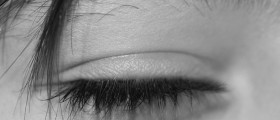
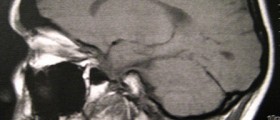
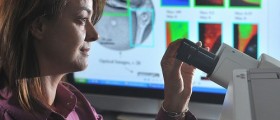
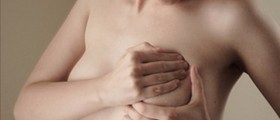

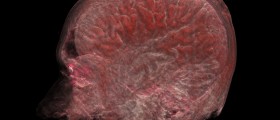





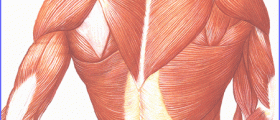

Your thoughts on this
Loading...